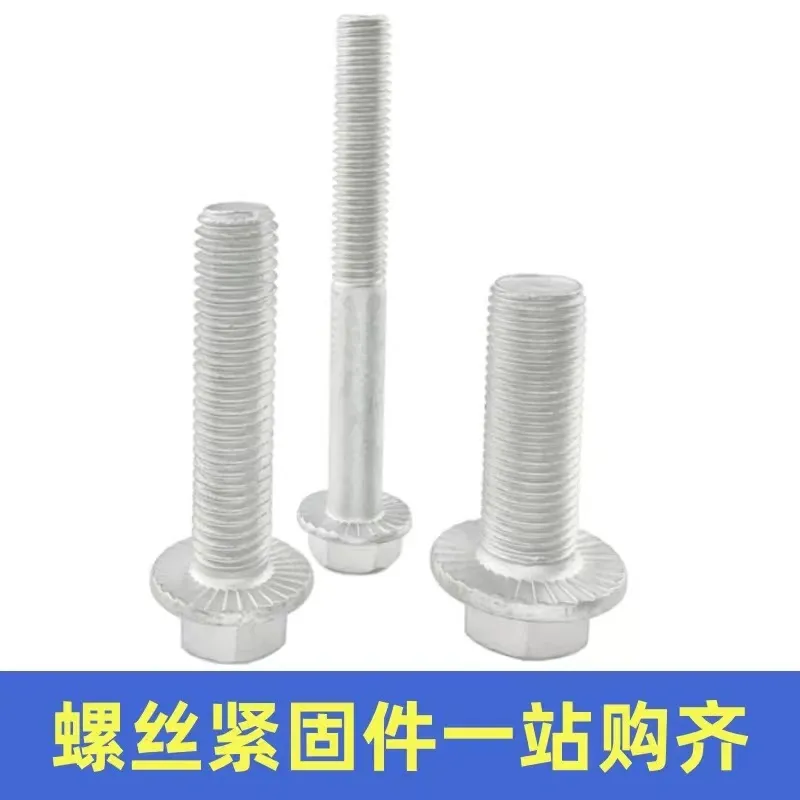

M16 Flat Washer for Secure and Reliable Fastening Solutions in Various Applications
Th12 . 09, 2024 23:01 Back to list
M16 Flat Washer for Secure and Reliable Fastening Solutions in Various Applications
Understanding Plain Washers A Focus on M16 Size
In the world of mechanical engineering, construction, and various repair applications, fasteners play a critical role in maintaining the integrity and stability of structures. Among these fasteners, plain washers are essential components that often go unnoticed but serve a vital purpose. In this article, we will delve into the specifications, functions, and applications of plain washers, specifically focusing on the M16 size.
What is a Plain Washer?
A plain washer, often referred to as a flat washer, is a thin plate with a hole in the center that is typically used to distribute the load of a fastener like a bolt or a nut. They are usually made from materials like steel, stainless steel, brass, or plastic and come in various sizes to accommodate different fasteners. The basic shape of a plain washer is circular, and they are defined by their outer diameter, inner diameter, and thickness.
Specifications of M16 Plain Washers
The designation M16 refers to washers that are specifically designed to fit M16 bolts, which have a nominal diameter of 16 mm. To ensure compatibility and optimal load distribution, an M16 plain washer typically has an outer diameter ranging from 30 mm to 35 mm and an inner diameter slightly larger than 16 mm, usually around 17 mm. The thickness can vary, but ranges from around 1.5 mm to 3 mm depending on the material and application.
Functions of Plain Washers
1. Load Distribution One of the primary functions of a plain washer is to distribute the load of the fastener over a larger surface area. This reduces the risk of damage to the material being fastened and minimizes the potential for failure in high-stress applications.
plain washer m16

2. Protection of Surfaces Plain washers provide a buffer between the fastener and the surface of the material. This protects against indentations and surface damage that can occur during installation or under load.
3. Vibration Resistance In dynamic applications where vibration is an issue, plain washers can help to prevent loosening of the fastener over time by providing greater friction against the material's surface.
4. Alignment Washers can help align the fastener to the material being fastened, ensuring a snug fit that can enhance the overall structural integrity of an assembly.
Applications of M16 Plain Washers
M16 plain washers find applications in numerous fields, including
- Construction Used in structural steel connections, where large bolts are essential to ensure safety and stability. - Automotive Industry Commonly found in vehicle assembly, especially in engine components and chassis, where fastening reliability is crucial. - Machinery Manufacturing Employed in the assembly of various machines to secure components effectively while distributing the load. - Home Improvement Projects Frequently used in DIY tasks, from securing furniture to assembling equipment in garages or workshops.
Conclusion
Plain washers, particularly M16 size, may not steal the spotlight, but their contribution to mechanical stability is undeniable. Understanding their specifications, functions, and applications can enhance the effectiveness of any project, be it a large-scale construction job or a small home repair. Whether you are a professional or a DIY enthusiast, ensuring you have the right washers on hand can make all the difference in achieving a durable and reliable assembly. By appreciating the importance of these simple yet indispensable components, we can better equip ourselves for various fastening challenges that come our way.
Latest news
-
Similarities and Differences Between Plain Washer and Spring Washer - Fastener Comparison Guide
NewsJun.10,2025
-
Effortless Installation Self-Drilling Window Screws - Fast, Secure, and Durable Fasteners
NewsJun.10,2025
-
Self Drilling Stucco Screws for Fast, Secure Installation Self Tapping & Self-Tapping Fasteners
NewsJun.10,2025
-
Premium Hot Dipped Galvanized Self Tapping Screws - Durable Corrosion Resistance
NewsJun.09,2025
-
Discover M12 Weld Stud Benefits & Applications Guide
NewsJun.09,2025
-
M25 Stainless Steel Washers High-Durability Fasteners for Corrosion Resistance
NewsJun.09,2025

